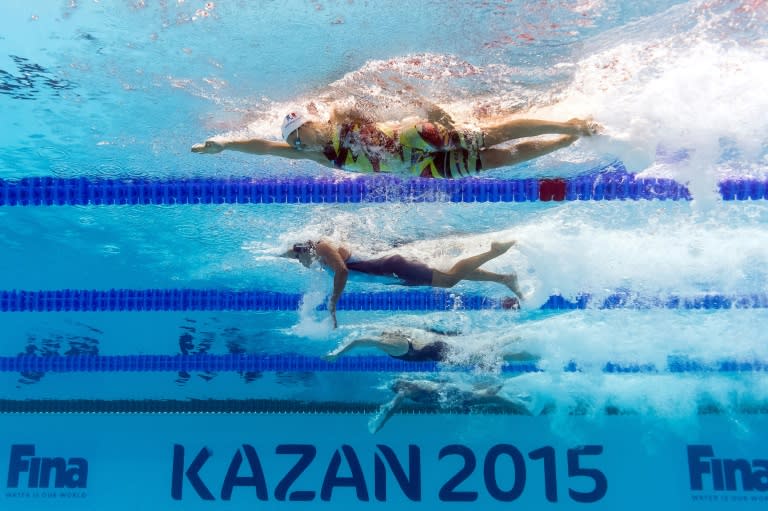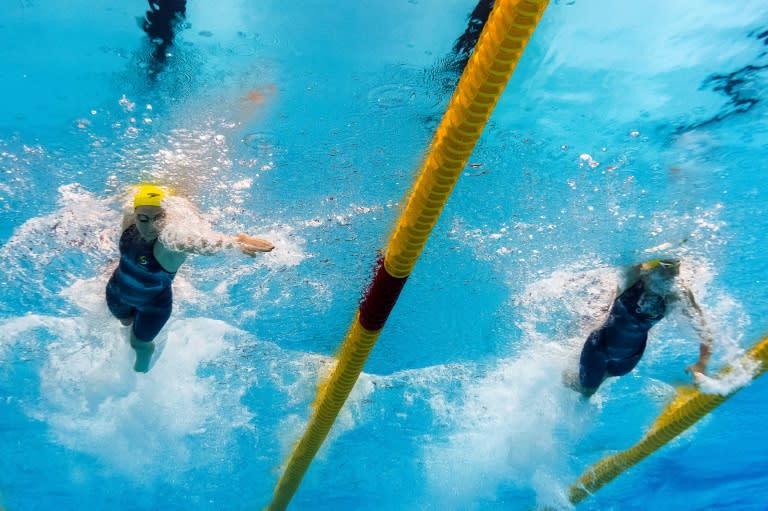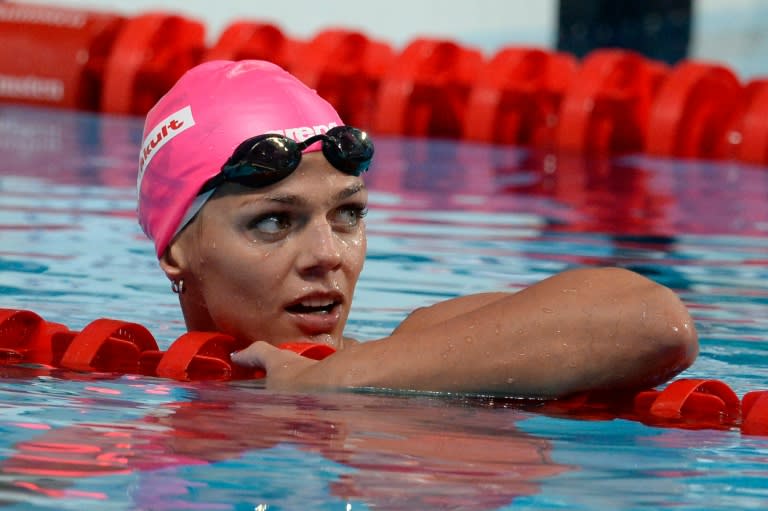WADA to probe Russian swimming 'systematic' doping claim
World anti-doping agency WADA will launch an inquiry into allegations of "systematic" doping in Russian swimming, describing the latest drugs claims as "concerning" at a time when "clean sport is in peril". Russian athletes have already been banned from international competition after a WADA report uncovered evidence of state-sponsored doping and The Times said Wednesday that the situation in Russian swimming was similar. "These suggestions are of concern to WADA and its partners in the anti-doping movement and, arrive at a time when trust in clean sport is already in a perilous state," said WADA in a statement. The Times claimed that Sergei Portugalov, the doctor said to be the mastermind behind doping in Russian athletics, had pushed swimmers on Russia's national team to take performance-enhancing drugs. The paper cited a witness who testified that "pills and medicines" were available by the side of the pool during one competition in Moscow. Other allegations are that two Russian swimmers were not punished after testing positive for the banned blood-booster EPO and that witnesses were "terrified" of going public due to the fear of reprisals. "There is no doubt that today’s disturbing assertions of orchestrated doping in Russian swimming should be scrutinized," said WADA President, Craig Reedie. "WADA and its partners are under no illusions about the challenges facing sport's integrity today." WADA said they already written to the world swimming governing body, FINA, adding that they are concerned by the allegations concerning Portugalov, who is currently facing a lifetime ban from working in athletics. FINA said that it has taken a "robust" approach towards anti-doping procedures involving Russian swimmers following revelations about the country's athletics programme. "While FINA is not aware of any concrete evidence of systemic doping in Russian swimming, we have taken a particularly robust approach to our anti-doping procedures in relation to Russia and Russian competitions, in light of WADA's recent investigation," said a FINA statement. FINA called on The Times to share its evidence and said that in the wake of November's WADA independent commission report into doping in Russian athletics, it took steps to firm up its own anti-doping procedures. "Following the results of the WADA investigation, FINA issued a directive to ensure the continued integrity of the testing programme," FINA added. "The entirety of FINA's unannounced out-of-competition doping control programme in Russia is now conducted by a third-party independent of FINA and RUSADA (the Russian Anti-doping Agency), the Swedish company IDTM." FINA pointed out that samples taken during the 2015 Aquatics World Championships, which took place in the Russian city of Kazan, had been analysed in a WADA-accredited laboratory in Moscow, supervised by independent observers. FINA said that "the great majority" of samples collected in 2015 from Russian swimmers based in Europe had been analysed in WADA-accredited laboratories in Cologne and Barcelona. Samples taken from Russian swimmers based outside Europe were sent either to Montreal or Salt Lake City. It added: "One hundred percent of samples collected in Russia will be analysed in these overseas laboratories in 2016." In a statement published by the R-Sport news agency, the Russian federation said: "The Russian Swimming Federation condemns doping. "The Federation developed an anti-doping programme aimed at preventing doping in sport that has already been working for a few years. Information about concealed doping cases is not true." The federation added that from 2012 to 2015 -- the period identified for the alleged concealment of positive EPO tests -- Vitaly Melnikov was the only Russian swimmer suspended by FINA for using EPO. The Times said that Portugalov had not responded to questions. Russian swimmers have produced over 40 failed drug tests over the past decade -- more than any other country. Last week, four-time world breaststroke champion Yuliya Efimova was suspended from competition for alleged doping, amid reports she now faces a life ban for using the illegal substance meldonium.




